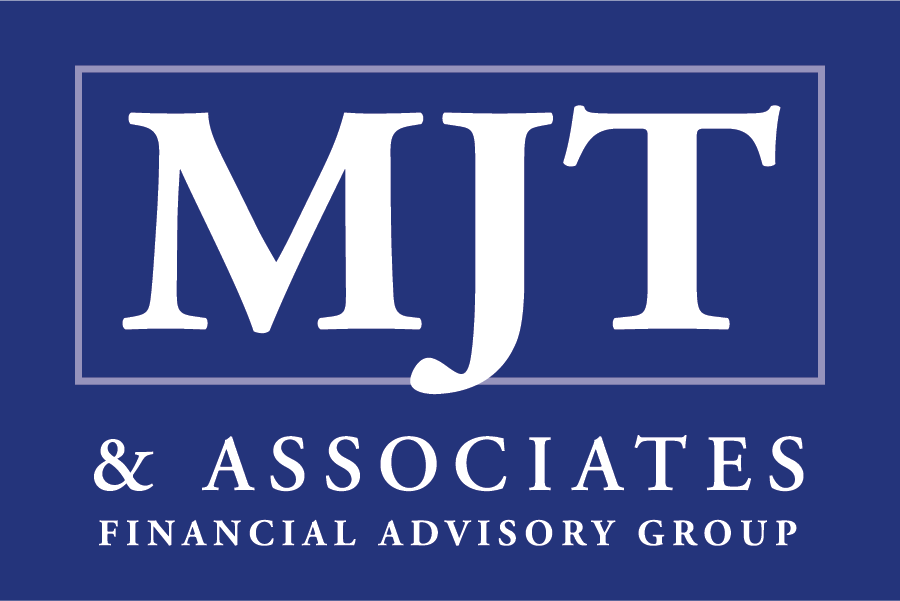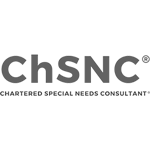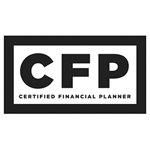Originally Published July 5, 2024 | Updated 2026
Tax planning isn't something you do once a year in March. For business owners, it's an ongoing strategy that can mean the difference between paying unnecessary taxes and keeping tens of thousands of dollars in your business.
With the One Big Beautiful Bill Act (OBBBA) signed into law in July 2025, the tax landscape for small businesses has shifted dramatically. Some changes took effect immediately, while others begin in 2026. Understanding these new rules (and acting strategically) can substantially reduce your tax burden.
This guide cuts through the complexity to focus on what matters most: actionable strategies that save you money. Whether you're a sole proprietor, LLC owner, S corporation, or planning your exit from your business, these ten approaches will help you maximize profits while minimizing liabilities.
What the OBBBA Changed for Business Owners
Before diving into strategies, let's clarify what's different for 2026:
- 100% bonus depreciation restored permanently for qualifying property purchased after January 19, 2025
- 20% qualified business income (QBI) deduction made permanent with expanded income thresholds and a new $400 minimum deduction for businesses with $1,000+ in qualifying income
- R&D expenses can now be immediately expensed (rather than amortized over five years) for costs incurred in 2025 and later
- Section 179 expensing limit increased to $1.22 million for 2025 (phase-out begins at $3.05 million in purchases)
- Employer-provided childcare credit expanded from 25% to 40-50% of costs (starting 2026), with maximum credits up to $600,000 for small businesses
- Business interest deduction rules relaxed
- Energy efficiency tax credits phasing out (commercial clean vehicle credit ended September 2025, energy efficient buildings deduction ends June 30, 2026)
These changes create both opportunities and deadlines. Let's explore how to capitalize on them.
Strategy 1: Maximize the Restored 100% Bonus Depreciation
The OBBBA permanently restored 100% bonus depreciation for qualifying property. This means you can deduct the entire cost of eligible assets in the year you place them in service.
Qualifying assets include:
- Machinery and equipment
- Computers and software
- Office furniture
- Business vehicles (with limitations)
- Qualified improvements to business property
Practical Example:
You purchase $150,000 in new equipment in 2026. Under 100% bonus depreciation, you deduct the full $150,000 in 2026. If you're in the 24% federal tax bracket, that's an immediate $36,000 tax savings. Add state taxes, and the savings increase further.
Key Considerations:
- Timing matters. Place assets in service before December 31 to claim the deduction that tax year
- Bonus depreciation applies to both new and used assets (unlike previous versions that favored new property)
- Consider your current vs. future income when deciding whether to maximize depreciation now or spread it over time
Strategy 2: Leverage Section 179 Expensing for Immediate Deductions
While bonus depreciation gets the headlines, Section 179 remains a powerful tool. For 2025, you can deduct up to $1.22 million in qualifying purchases. The limit begins phasing out after $3.05 million in total equipment purchases.
Section 179 vs. Bonus Depreciation:
Both provide immediate expensing, but Section 179 has an annual dollar cap while bonus depreciation does not. Most small businesses use Section 179 first, then apply bonus depreciation to remaining purchases that exceed the Section 179 limit.
Strategy Tip:
If you're planning major equipment purchases anyway, accelerating them into 2025-2026 can create substantial tax savings. However, don't buy equipment you don't need just for the tax break. The best financial move is one that serves your business and provides tax benefits.
Strategy 3: Optimize Your QBI Deduction
The qualified business income (QBI) deduction allows eligible pass-through entities (sole proprietorships, partnerships, S corporations, LLCs) to deduct up to 20% of qualified business income. The OBBBA made this permanent and sweetened the deal.
What Changed:
- Income thresholds where limitations begin increased from $100,000 to $150,000 (joint filers) starting in 2026
- New minimum deduction of $400 for any business with at least $1,000 in qualifying income (starting 2026), even if otherwise fully phased out
Income Thresholds for 2025:
- Single filers: QBI deduction phases out between $191,950 and $241,950
- Joint filers: Phase-out range of $383,900 to $483,900
If your income approaches these thresholds, strategic timing of income and expenses can keep you in the optimal range for the full deduction.
Key Limitation:
Specified service trades or businesses (SSTBs) face additional restrictions. This includes fields like health, law, accounting, consulting, financial services, and athletics. If you operate an SSTB, planning becomes even more critical.
Strategy 4: Immediately Expense R&D Costs
Starting with 2025, businesses can immediately expense research and experimental (R&E) costs rather than amortizing them over five years. This is a major win for companies investing in innovation, software development, or process improvements.
What Qualifies:
- Software development costs
- Product development and testing
- Process improvement research
- Prototype development
Retroactive Opportunities:
Small businesses (with average annual gross receipts of $31 million or less) can retroactively deduct unamortized R&D costs from 2022-2024 via amended returns. This could result in substantial refunds.
Action Step: Work with your tax advisor to conduct a Section 174 study identifying all qualifying R&D expenditures and determine the optimal strategy for your business.
Strategy 5: Time Income and Expenses Strategically
One of the simplest yet most effective tax strategies involves controlling when you recognize income and when you incur deductible expenses.
For Most Business Owners:
- Defer income to 2026 if you expect to be in the same or lower tax bracket next year (delay year-end invoicing, defer bonuses)
- Accelerate deductible expenses into 2025 (prepay expenses, purchase supplies, make charitable contributions)
Exception:
If you expect to be in a significantly higher tax bracket next year (due to a business sale, major income event, or changing life circumstances), reverse this strategy. Accelerate income into the lower-tax year and defer expenses to offset higher future income.
Cash vs. Accrual Accounting:
Your accounting method affects timing flexibility. Cash-basis businesses have more control over recognition timing, while accrual-method businesses recognize income when earned and expenses when incurred (regardless of cash flow).
Strategy 6: Maximize Retirement Plan Contributions
Contributing to retirement plans provides immediate tax deductions while building long-term wealth. Business owners often have higher contribution limits than W-2 employees.
Solo 401(k) (for Self-Employed with No Employees):
- Employee contribution: Up to $23,500 in 2025 (plus $7,500 catch-up if age 50+)
- Employer contribution: Up to 25% of net self-employment income
- Combined maximum: $70,000 ($77,500 with catch-up)
SEP IRA:
- Simpler administration than 401(k)
- Contribution: Up to 25% of compensation (same $70,000 cap)
- Works well for businesses with employees
Defined Benefit Plans:
For high-income business owners, defined benefit plans allow much larger tax-deductible contributions (often $200,000+ annually depending on age and income). These work particularly well for business owners approaching retirement who want to aggressively fund retirement while reducing current taxes.
Strategic Benefit: Retirement contributions serve dual purposes: immediate tax savings and long-term wealth building. For business owners planning exits, maximizing contributions in high-income years is critical.
Strategy 7: Optimize Your Entity Structure
Your business structure affects how you're taxed. With OBBBA changes, it's worth reevaluating whether your current structure still makes sense.
Common Structures:
- Sole Proprietorship: Simplest, but you pay both income tax and self-employment tax on all profits
- LLC: Liability protection, flexible tax treatment (can elect S corp status)
- S Corporation: Allows splitting income between salary (subject to payroll taxes) and distributions (not subject to payroll taxes)
- C Corporation: Separate tax entity, 21% flat corporate tax rate, but potential double taxation on distributions
When S Corp Election Makes Sense:
If your business generates significant profit ($60,000+), electing S corp status can save substantial self-employment taxes. You pay yourself a reasonable salary (subject to payroll taxes), then take remaining profits as distributions (avoiding the 15.3% self-employment tax on that portion).
Caution: The IRS requires S corp owners to pay themselves "reasonable compensation." Don't try to minimize salary too aggressively, it invites audit risk.
Strategy 8: Capture Often-Overlooked Deductions
Many business owners miss legitimate deductions simply because they don't track them properly or don't realize they qualify.
Commonly Missed Deductions:
- Home office deduction: If you regularly use part of your home exclusively for business, you can deduct related expenses (portion of mortgage/rent, utilities, insurance, depreciation)
- Vehicle expenses: Standard mileage rate for 2025 is 70 cents per mile. Track business miles meticulously
- Health insurance premiums: Self-employed individuals can deduct 100% of premiums
- Startup costs: You can deduct up to $5,000 in business startup costs in year one
- Education and training: Courses, conferences, and professional development that maintain or improve business skills
- Professional services: Legal, accounting, consulting, financial planning fees
- Bad debt write-offs: Uncollectible receivables (accrual-method taxpayers)
Documentation is Critical: The IRS requires substantiation for deductions. Use accounting software, save receipts, and maintain clear records of business vs. personal expenses.
Strategy 9: Leverage the Expanded Childcare Credit (Starting 2026)
Beginning in 2026, the employer-provided childcare credit jumps from 25% to 40% of eligible costs (50% for small businesses), with the maximum annual credit increasing from $150,000 to $600,000 for qualifying small businesses.
This Applies If You:
- Provide on-site childcare facilities
- Contract with qualified childcare providers on behalf of employees
- Provide childcare resource and referral services
For businesses with young-parent employees, offering childcare benefits can provide substantial tax credits while improving recruitment and retention.
Strategy 10: Plan Your Business Exit with Tax Efficiency
If you're a business owner approaching retirement or considering selling your business, tax planning becomes paramount. A well-structured exit can save hundreds of thousands (or millions) in taxes.
Key Considerations:
- Asset sale vs. stock sale: Different tax treatment. Asset sales often favor buyers; stock sales often favor sellers
- Qualified Small Business Stock (QSBS): Potential to exclude up to $10 million (or 10x basis) of capital gains if requirements are met
- Installment sales: Spread gain recognition over multiple years
- Charitable giving strategies: Donating appreciated business interests can provide substantial deductions
- Timing: Selling in a lower-income year or coordinating with other tax events
Exit planning should begin 3-5 years before your anticipated sale. This timeline allows you to maximize business value, structure the transaction optimally, and implement tax-saving strategies that require advance planning.

How Tax Planning Integrates with Your Broader Financial Goals
Tax planning doesn't exist in isolation. At MJT & Associates, we see how business tax decisions ripple through your entire financial life:
- Retirement planning: Business income funds retirement contributions; timing retirement affects exit strategies
- Cash flow management: Tax savings create capital for reinvestment or personal goals
- Estate planning: Business entity structure affects legacy and succession planning
- Divorce planning: Business valuation and tax implications matter in marital dissolution
The business owners we work with often face complex decisions: Should I sell now or wait? How do I balance aggressive growth with tax efficiency? What's the right time to transition out?
These questions don't have one-size-fits-all answers. They require coordinated planning across tax strategy, retirement goals, and personal priorities.
Common Tax Planning Mistakes to Avoid
- Waiting until tax season: Most strategies require action during the tax year, not after December 31
- Poor record-keeping: Without documentation, deductions disappear under audit
- Misclassifying workers: 1099 vs. W-2 errors trigger IRS scrutiny and penalties
- Mixing personal and business expenses: Maintain separate accounts and clear boundaries
- Ignoring estimated taxes: Underpayment penalties add unnecessary costs
- DIY complex planning: Some strategies require professional guidance to implement correctly
The Value of Professional Guidance
Tax laws change frequently. The OBBBA alone introduced dozens of provisions affecting businesses. Staying current (and identifying opportunities specific to your situation) requires expertise.
Your Advisory Team Should Include:
- CPA or tax accountant: Handles compliance, identifies deductions, prepares returns
- Financial advisor: Integrates tax strategy with retirement planning, business exit planning, and wealth management
- Attorney: Structures entity formation, handles contracts, manages legal aspects of business transactions
The cost of professional advice is typically dwarfed by the tax savings and peace of mind it provides.
Frequently Asked Questions
Q: When should I start tax planning for the year?
A: Immediately. Tax planning is an ongoing process, not a year-end scramble. The best strategies require advance planning and often need to be executed before December 31 to affect the current tax year.
Q: Should I always maximize deductions in the current year?
A: Not necessarily. If you expect substantially higher income next year (or a business sale), deferring deductions to offset that higher income might save more total tax. Strategic planning considers multi-year tax situations.
Q: How do I know if S corp election makes sense for my business?
A: Generally, if your business generates significant profit (roughly $60,000+ annually), S corp status can save self-employment taxes. However, you must run payroll, file additional forms, and pay yourself reasonable compensation. Work with your CPA to model the actual savings for your situation.
Q: Can I retroactively claim R&D expenses from previous years?
A: Small businesses (with average annual gross receipts under $31 million) can file amended returns to retroactively deduct unamortized R&D costs from 2022-2024. This requires adjusting any R&D credits previously claimed in those years. Consult your tax advisor to determine if this benefits your business.
Q: How does business tax planning differ when approaching retirement?
A: Tax planning becomes more critical as retirement approaches. You're balancing maximizing current deductions (like retirement contributions) with planning for business exit tax consequences. Business sale timing, structure, and coordination with retirement income needs require integrated planning years in advance.
Conclusion: Take Control of Your Tax Situation
The OBBBA created substantial opportunities for business owners willing to act strategically. From restored 100% bonus depreciation to the enhanced QBI deduction, these provisions can save tens of thousands of dollars annually.
But opportunities expire, and deadlines matter. Energy credits are phasing out. Equipment must be placed in service by December 31 to claim current-year deductions. Retirement contributions have annual limits and deadlines.
The business owners who save the most aren't necessarily those with the highest revenues. They're the ones who plan proactively, track expenses meticulously, and work with qualified advisors to optimize their tax situation.
At MJT & Associates, we help business owners integrate tax strategy with broader financial planning. Whether you're growing your business, planning your exit, or navigating a life transition, tax planning is one piece of a comprehensive financial strategy.
Ready to build a tax strategy that actually works for your business and your life? Contact us for a consultation.
___
About the Author: Mitchell J. Thompson holds the CFP®, CDFA®, ChSNC®, and AEP® designations and specializes in holistic financial planning for entrepreneurs and business owners. MJT & Associates helps clients integrate tax strategy, retirement planning, and business transition planning to achieve their financial goals.
Disclosure: This article is for informational purposes only and does not constitute tax, legal, or financial advice. Tax laws change frequently; consult with qualified tax and financial professionals before implementing any strategies. The One Big Beautiful Bill Act provisions discussed are based on legislation enacted as of July 2025 and are subject to IRS guidance and interpretation.











